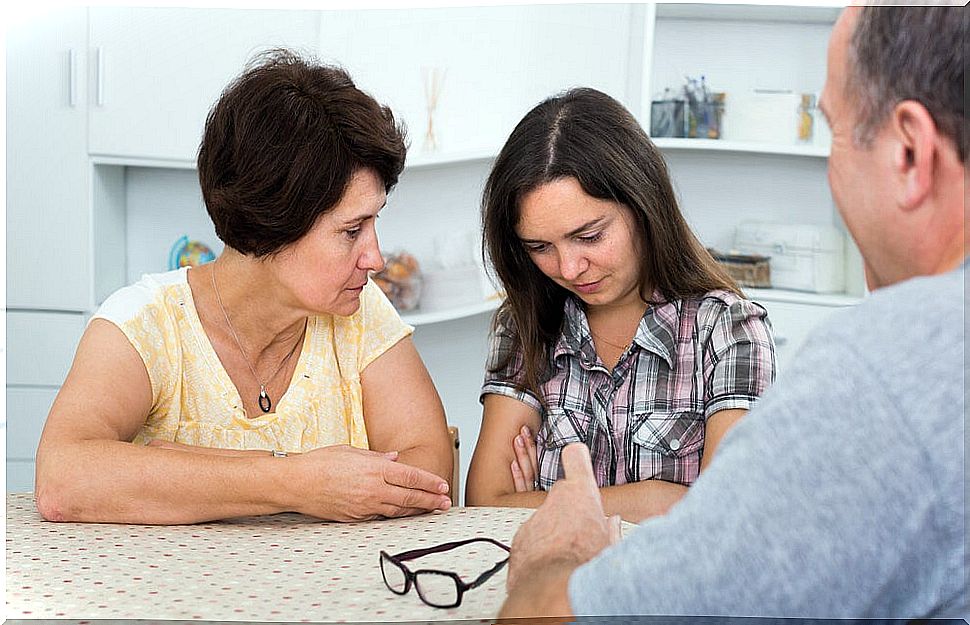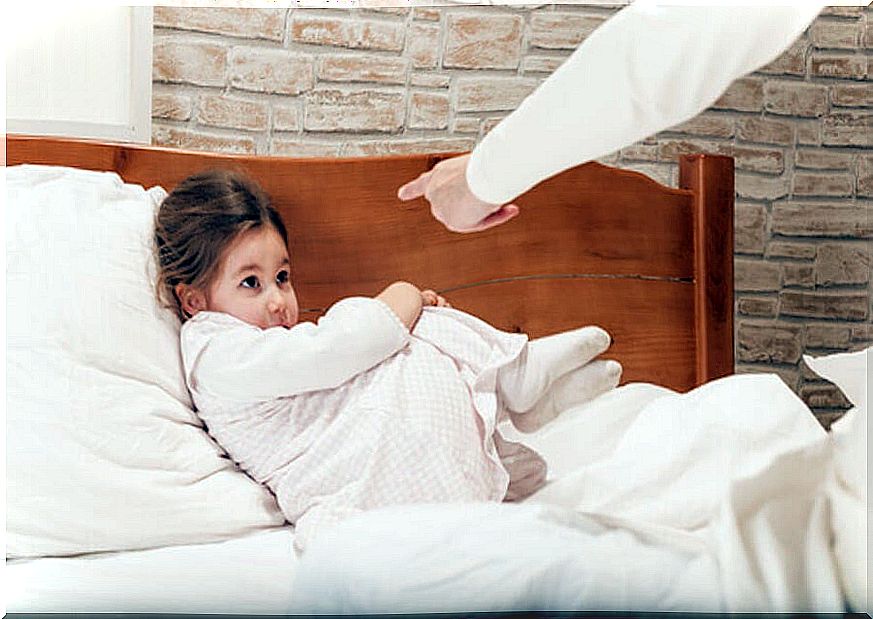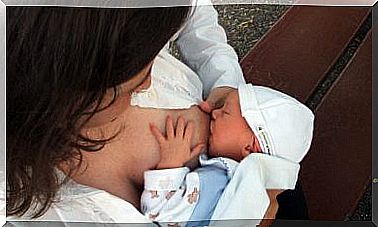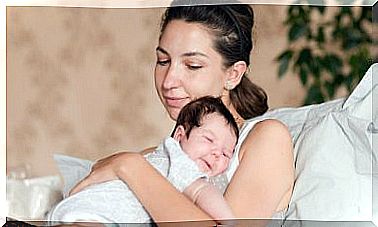If You Get Angry With Your Children, These Questions Will Help You To Reflect

Anger and frustration are universal human emotions, but that doesn’t mean you have to be the victim of negative feelings. As adults, we have an obligation to our family and to ourselves to prevent our emotions from taking over us and to be able to reflect on what happens.
Let’s be honest. Parenting is hard! When you simply want to go to the bathroom alone or shower for more than two minutes without hearing little footsteps outside the curtain, it can be incredibly frustrating. Or, when you’ve told your child for the umpteenth time to turn off the light when they leave a room, it can make you angry.
In frustration you may scream without reflecting
One way many parents express their anger and frustration is by yelling at their children. They do not stop to reflect on what is happening. It is not because they necessarily want to, but because, at times, they feel so overwhelmed that they lose control. Other times, it may be easier to yell than to learn strategies to become a calmer parent.
Yelling makes children more aggressive, physically and verbally. As a parent, raising your voice to the point of yelling scares children and makes them feel insecure. In addition, it causes long-term effects, such as anxiety, low self-esteem and increased aggression. A parent who is calm is reassuring, making children feel loved and accepted despite misbehavior.
There are many questions and answers you can choose from when faced with a situation that causes your blood to boil. Finding peace is possible! Learn to manage your anger and come to a peaceful solution using these questions as strategies for your internal change and the improvement of your family situation.

Questions to reflect on and not express your anger negatively
It’s tempting to run with your short-term exasperation, but giving in to anger can cause even more challenges. Before attacking your children or taking what you consider appropriate actions, think about how things will be when the smoke clears. If you yell at your children, you will always regret it later; it is better to take a deep breath and reflect.
1. Do you know how to give yourself a waiting time?
Wait times are not just for young children. Adults also need waiting times or short breaks to calm down. Taking a deep breath, give yourself a few minutes to allow a level of reason to return to your mind. You will be in a better place to make the right parenting decisions.
2. Is it so bad to let your children make mistakes from time to time?
When appropriate, let your family members do the wrong thing. It is not your job to prove someone wrong; just allow them to be wrong. If you have a strong desire to show them that they are doing the wrong thing, that is your ego bark.
Of course, it is your responsibility as a parent to educate your children between right and wrong. At the end of the day, however, you will not be able to control the choices they make and will ultimately have to learn from the consequences when they experience errors in judgment.
3. What do you prefer: to be happy or to be right?
Decide which is more important: to be happy or to be right. Many arguments are the result of the desire to be right. If you choose to be happy to win every heated argument with your children, your life will be more enjoyable and you will become a more relaxed parent overall. What is more important for you?
4. Can you notice your anger before reflecting?
Take a minute to notice your anger. Instead of reacting without thinking about your frustration, take a moment to examine it. Imagine that you are a third witness to your irritation and annoyance.
It feels? Where does the emotion in your body come from? Does it feel in the head, in the chest or in the stomach? Has your breathing changed? Are your hands shaking or squeezing? By disconnecting from anger, you can gain a different perspective and weaken your negative emotions.
5. Why are you upset?
Ask yourself why you are upset. Did someone physically hurt you? Did they disappoint you? Did they violate one of your values? Find out why you are frustrated and you can take the necessary steps to discover a solution. The important thing is to know what happens to you to find the solutions as soon as possible.

6. Do you know how to find solutions and reflect?
Look for solutions instead of trying to feel better. Acting in anger is about making yourself feel better. Instead of yelling at your kids, for example, work together to find a peaceful solution. The result will be much better and it will be well worth it. You will all feel better and your children will not have an emotional wound that they will carry throughout their lives.
7. Do you know relaxation techniques?
Learn and practice relaxation techniques. The more relaxed you are on a regular basis as a parent, the less likely you are to get angry or lose control. Relaxation techniques can also be helpful after the conflict event. Learn to calm yourself. It is a skill that can be learned.
To reflect …
Look at your annoyance as a practical opportunity to find peace. Whenever you feel upset, look at the situation as an opportunity to practice your anger management skills. Commit to handling this bout of frustration better than last time.
Avoid letting anger, frustration, and annoyance take over. As a human being and a thoughtful parent, you have options available to you. Seek to find solutions and peace instead of giving in to your immediate impulses, which only harm you and your family.










